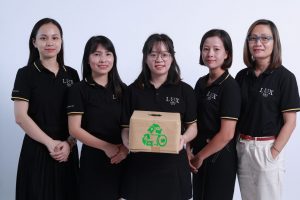Winner of the Travelife Partner Commitment to Sustainability award, Lux Travel DMC aims to achieve the highest level of certification, the first luxury tour operator and DMC is pioneering the elimination of plastic “Zero Plastic” in its applications. The Lux Travel DMC Strategy on Zero Plastic Waste 2024 lays out a path to consider plastic as a valuable resource and defines areas of work contributing to ambitious plastic waste reduction targets as outlined in the Ocean Plastics Charter.
This strategy and its implementation will significantly contribute to achieving both a circular and low-carbon economy while reducing the environmental impact of plastic waste. Adopting a circular economy approach, the strategy aims to prolong the use of products and materials and maximize their value, envisioning keeping all plastics within the economy and preventing their entry into the environment, thus achieving zero plastic waste.
Three core areas of this strategy
The strategy recognizes the interdependence of three core areas: prevention, collection and clean-up, and value recovery, constituting an integrated system. Performance enhancement of this system will be supported through various enabling activities like consumer education, research, regulations, and market-based instruments, all working towards the zero plastic waste goal.

Zero Plastic
In this context, the document focuses on three main areas: a) preventing plastic waste through designing durable and repairable plastic products, and reducing the demand for disposable plastic items; b) ensuring the collection of all plastics, including through clean-up efforts, directing them back into the economy; and c) recovering value from all plastic materials.
Ten key result areas
Ten key result areas will guide future actions and collective efforts toward achieving zero plastic waste:
- Designing all plastic products for enhanced durability, reusability, and recyclability;
- Significantly increasing responsible use and recycling of single-use products;
- Expanding collection systems to keep all plastic products within the economy;
- Creating robust domestic markets and diverse end uses to boost demand for recycled plastics;
- Establishing Vietnam as a world-leading recycling hub capable of processing and recovering value from all types of plastic waste;
- Empowering Vietnamese households, businesses, and institutions to responsibly prevent and manage plastic waste;
- Substantially reducing plastic pollution from aquatic activities;
- Implementing effective research and monitoring systems to inform decision-making and measure performance;
- Ensuring efficient capture and clean-up of plastic pollution to protect Vietnam’s environment, shorelines, and waterways;
- Accelerating global action to address marine litter and plastic pollution, showcasing Vietnamese leadership in this area.
About Lux Travel DMC
Founded in 2005, Lux Travel DMC is leading Luxury Tour Operator 2023 by World Travel Awards. We provide 100% tailor-made private tours in Southeast Asia. The holiday is designed around your interest, time and budget. 99% of our former customers are satisfied with our service. Therefore, we have a lot of positive reviews on TripAdvisor. Please feel free to contact us to have direct consultation for planning a trip designed in your own way.
Contact Us
- Address: No.456 Lac Long Quan Street, Tay Ho District, Hanoi, Vietnam
- Phone: (+84) 24 3927 4120
- Email: sales@luxtraveldmc.com
- Hotline: +84-336-276-996
- Website: https://luxtraveldmc.com
